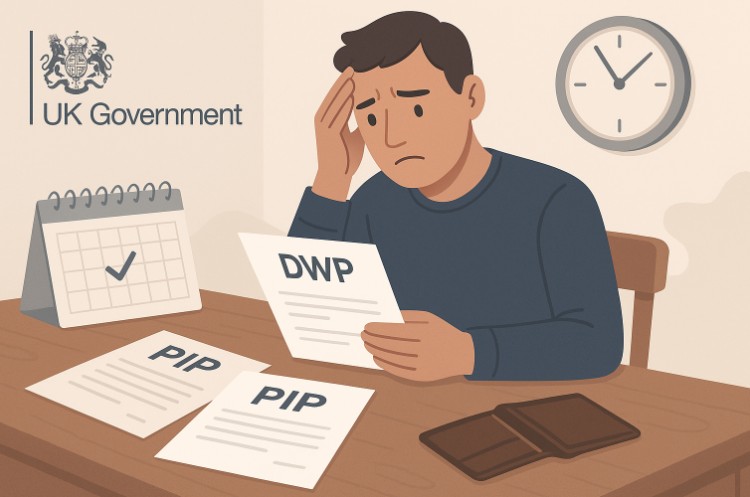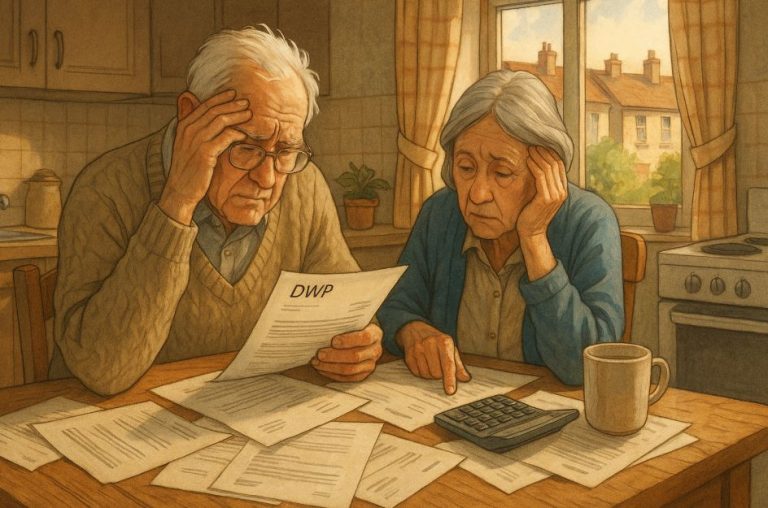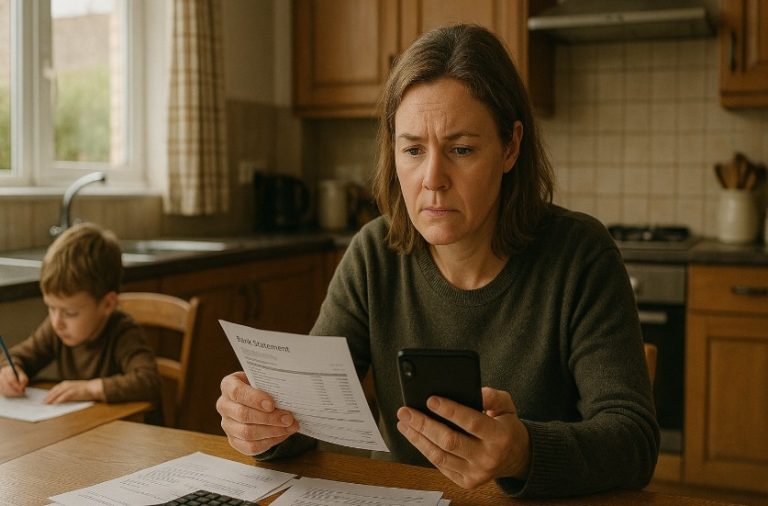Housing Benefit is a key financial support mechanism in the UK, but many people are unsure whether it is means-tested. Understanding how Housing Benefit is assessed is essential for determining eligibility and the level of assistance available.
This article explores the criteria used to calculate Housing Benefit, including income, savings, and personal circumstances.
With Universal Credit replacing Housing Benefit for most new claimants, it’s important to understand who still qualifies and how the benefit operates within today’s welfare system.
What Does It Mean for a Benefit to Be Means-Tested?
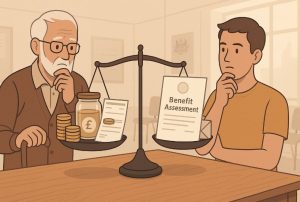
A benefit is considered means-tested when the amount awarded depends on an assessment of a claimant’s financial situation.
This includes evaluating income, savings, and sometimes the financial contributions of other household members. The purpose of means-testing is to direct financial support to those who genuinely need assistance based on limited means.
Unlike non-means-tested benefits, which are awarded regardless of financial background (such as Attendance Allowance or Child Benefit), means-tested benefits aim to reduce inequality by supporting individuals and families facing economic hardship.
In the context of the UK’s welfare system, Housing Benefit is a well-established example of a means-tested benefit.
The claimant’s financial details, such as employment income, pensions, and any savings or investments, are assessed to determine the level of support. In some cases, the income of other adults living in the household may also be considered.
How Is Housing Benefit Determined in the UK?
Housing Benefit is a legacy welfare payment designed to help low-income individuals and households meet their rent obligations.
Although Universal Credit now covers housing costs for most new claimants, Housing Benefit remains available for certain categories such as pensioners, residents in temporary accommodation, and people in supported housing.
The administration of Housing Benefit is handled by local authorities across the UK. They assess each claim by reviewing:
- The rent amount
- The type of housing (private or social)
- The number of bedrooms needed based on household size
- The claimant’s financial and personal circumstances
This benefit does not apply to mortgage payments or homeownership. Claimants must either be renting from a council, housing association, or private landlord to qualify.
Who Is Eligible for Housing Benefit?

Eligibility for Housing Benefit is determined by several key criteria. Claimants must generally be responsible for paying rent and have a low income or be on certain benefits.
Common eligibility conditions include:
- Income below a specific threshold based on household needs
- Savings below £16,000 (unless receiving the Guarantee Credit of Pension Credit)
- You must be living in the UK and have a settled immigration status to qualify.
- Paying rent for social or private housing
Those who cannot usually claim Housing Benefit include:
- People already receiving Universal Credit (except in specific housing situations)
- Most full-time students (with certain exceptions)
- Individuals with savings above £16,000 and no entitlement to Pension Credit
How Do Income and Capital Affect Your Housing Benefit Claim?
Housing Benefit is directly influenced by both income and capital. Local authorities use this financial information to calculate the claimant’s entitlement, applying tapering reductions where applicable.
Here is how different types of income and capital affect claims:
| Type of Income or Capital | Impact on Housing Benefit |
| Earnings from employment | Reduces entitlement depending on amount and deductions |
| State or private pensions | Counted as income; partially disregarded in some cases |
| Other benefits (e.g., Carer’s Allowance) | Treated as income; some are fully or partially disregarded |
| Savings below £6,000 | No impact on entitlement |
| Savings £6,000–£16,000 | Tariff income applied, reducing benefit proportionally |
| Savings above £16,000 | Disqualifies the claimant (unless on Pension Credit Guarantee) |
Capital is subject to what is known as tariff income, where every £250 (or part thereof) over the threshold is treated as generating £1 of income weekly. This fictional income is added to the claimant’s actual income during the assessment.
Can You Get Housing Benefit While Receiving Other Benefits?

Housing Benefit can be awarded alongside several other benefits, provided the combined income does not exceed the eligibility threshold.
It is commonly claimed with:
- Pension Credit (especially the Guarantee Credit element)
- Income Support
- Income-based Jobseeker’s Allowance
- Income-related Employment and Support Allowance
However, claimants cannot usually receive Housing Benefit if they are on Universal Credit, which includes a housing cost component. The only exceptions are:
- Residents of temporary or supported housing
- People who have reached State Pension age and are not yet migrated to Universal Credit
This interaction between benefits requires careful management, as overpayments may occur if changes are not reported promptly.
What Are the Key Criteria for Housing Benefit for Pensioners?
For individuals who have reached State Pension age, the rules surrounding Housing Benefit differ from those applied to working-age claimants.
Pensioners are one of the groups still allowed to make new claims for Housing Benefit, provided they meet the necessary conditions.
This distinction is due to the fact that Universal Credit, which has largely replaced legacy benefits like Housing Benefit for most working-age people, does not apply in the same way to pensioners.
State Pension Age Requirement
The claimant (and their partner, if applicable) must both be over State Pension age. If only one partner is over pension age, the couple is considered a “mixed-age couple” and must usually claim Universal Credit unless they fall into an exception category, such as having continuous entitlement since before the policy change in May 2019.
Savings and Capital Thresholds
Pensioners benefit from more lenient savings rules. Capital under £10,000 is ignored when assessing entitlement, and tariff income (a notional income assumed from savings) only applies to capital over this amount.
The upper limit of £16,000 still applies unless the claimant receives the Guarantee Credit part of Pension Credit, in which case no capital limit is enforced.
Receipt of Pension Credit
If you receive the Guarantee Credit part of Pension Credit, you’re usually entitled to the full amount of Housing Benefit without further assessment.
This means they are considered to have no income for Housing Benefit purposes, ensuring full rent support (within limits).
Non-dependant Deductions
These are amounts deducted from Housing Benefit based on the assumption that an adult living with the claimant (such as an adult son or daughter) contributes to the rent.
For pensioners, the deductions may be lower than for working-age claimants, and some exemptions apply, such as when the non-dependant is a full-time student or on certain benefits.
Supported and Sheltered Housing
Pensioners living in supported housing arrangements may still claim Housing Benefit, even if they are in other circumstances that would otherwise require a Universal Credit claim.
Exemptions for Certain Groups
Some pensioners may be exempt from specific reductions, such as the under-occupancy charge (“bedroom tax”), which generally does not apply to claimants over State Pension age.
This framework is designed to provide greater financial stability to older adults, recognising their often fixed income levels and the increased likelihood of health or mobility issues that may require specific housing arrangements.
Pensioners are encouraged to seek advice when applying, especially in complex cases involving mixed-age households or changes in circumstances.
How Is Local Housing Allowance (LHA) Involved in Housing Benefit?

Local Housing Allowance (LHA) is the system used to determine the maximum amount of Housing Benefit that a private sector tenant can receive toward their rent.
LHA was introduced to standardise rent support across different regions of the country, ensuring that tenants in similar circumstances receive comparable support, while also controlling overall benefit expenditure.
LHA applies only to those renting from private landlords. It does not apply to:
- Council tenants
- Housing association tenants in social rent properties
- Tenants in supported or temporary accommodation
How LHA Works?
LHA rates are based on:
Broad Rental Market Areas (BRMAs)
Local councils divide their areas into Broad Rental Market Areas (BRMAs), which reflect distinct local housing markets. Rent data from these areas is used to set standard LHA rates.
Household Size and Bedroom Need
LHA is calculated according to the number of bedrooms a household is deemed to require. This is based on the number of people in the home and their relationship to each other. For example:
- One bedroom for a single adult or couple
- One bedroom for every two children of the same gender under 16
- One bedroom for each child over 16 or of different genders over 10
Annual Rate Review
LHA rates are set annually by the government and may not keep pace with rapidly rising rental costs, leading to shortfalls for some tenants.
Capping and Maximum Limits
There are upper limits for each LHA rate, and claimants cannot receive more than this amount, even if their actual rent is higher. The LHA only covers what is considered a “reasonable” rent for the household type in that area.
Example of How LHA Impacts a Claim
Suppose a tenant in Manchester rents a two-bedroom flat for £750 per month, but the LHA rate for a two-bedroom property in their BRMA is £650. The Housing Benefit will only cover up to £650, and the tenant must make up the £100 difference.
Key points about LHA and Housing Benefit
- If your rent is higher than the local housing allowance (LHA), your benefit may not cover the full amount.
- LHA rates are publicly available on local council and government websites.
- When your rent is less than the local LHA rate, you’ll usually get Housing Benefit that matches your rent, rather than the maximum LHA.
- Shared accommodation rules apply to single people under 35, who are only entitled to the shared accommodation rate unless exceptions apply (such as disability).
Tenants in social housing are assessed under different guidelines compared to those in private rentals. Although LHA does not govern their benefit amounts, they may be affected by the under-occupancy penalty if they have more bedrooms than deemed necessary. However, this penalty does not apply to pensioners.
Understanding how LHA influences Housing Benefit calculations is essential for tenants renting privately, as it directly affects the level of financial assistance they will receive and whether they can afford to stay in their current accommodation.
What’s the Process to Apply for Housing Benefit in the UK?
Applying for Housing Benefit is done through the local authority, and the steps vary slightly depending on the region. Despite differences in housing types, the overall process to apply for Housing Benefit is similar throughout the UK.
Steps involved:
- Check eligibility on your local council’s website or via a benefits calculator
- Complete the application form, either online or via post, providing all requested information
- Submit supporting documents, such as proof of income, ID, tenancy agreement, and rent statement
- Await a decision, which typically takes between two and six weeks
- Receive confirmation, outlining how much you’ll get and whether payments go directly to you or your landlord
Claimants must report any changes in their circumstances, such as employment status, income level, or household composition, to ensure continued accuracy in benefit payments.
Which Benefits Are Means-Tested and Which Are Not?
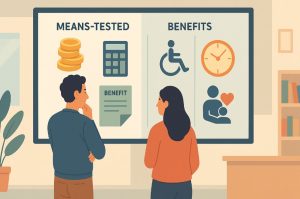
UK benefits are generally classified into two types: means-tested, which depend on your financial situation, and non-means-tested, which do not. Understanding this distinction is crucial when applying for financial support, as it determines how eligibility is assessed.
Means-Tested Benefits
Eligibility for means-tested benefits is determined by reviewing your income, savings, and total financial assets. The lower your financial resources, the more support you are likely to receive. These benefits are designed to provide essential assistance to individuals and families who cannot meet basic living or housing costs on their own.
Common means-tested benefits include
- Housing Benefit: Helps cover rent payments for low-income tenants.
- Universal Credit: A single monthly payment replacing multiple legacy benefits; includes housing and living cost support.
- Pension Credit: Provides extra income for people over State Pension age with a low income.
- Income Support: For people with low or no income who meet specific criteria, although gradually being phased out under Universal Credit.
- Council Tax Support: Reduces the amount of council tax a household must pay.
- Cold Weather Payment: Given during very cold weather to those on certain means-tested benefits.
Eligibility for these benefits depends on your financial circumstances, and the amount awarded may change if your income or savings change.
Non-Means-Tested Benefits
Non-means-tested benefits, on the other hand, are not affected by income or capital. They are typically based on other qualifying factors such as age, disability, caring responsibilities, or contributions made through National Insurance.
Examples of non-means-tested benefits include:
- State Pension: Based on National Insurance contributions, not current income or savings.
- Attendance Allowance: supports those over State Pension age who require personal care because of a health condition or disability.
- Carer’s Allowance: It provides financial help to people looking after someone with significant care requirements.
- Disability Living Allowance (DLA): For children under 16 with mobility or care needs.
- Personal Independence Payment (PIP): Replaces DLA for adults and provides support for those with long-term health conditions or disabilities.
- Bereavement Support Payment: Offers a lump sum and monthly payments to those who have lost their husband, wife, or civil partner.
- New Style Employment and Support Allowance (ESA): For those who cannot work due to illness or disability and have paid enough National Insurance contributions.
While you may be eligible for multiple non-means-tested benefits, it is not always possible to receive them all simultaneously due to overlapping rules. For instance, you cannot usually receive Carer’s Allowance and State Pension at the same time if both are worth the same or similar amounts.
Conclusion
Yes, Housing Benefit is a means-tested benefit, carefully calculated based on a person’s financial and living circumstances. It serves as a lifeline for many individuals and families who struggle to meet rental obligations.
With eligibility dependent on income, savings, household members, and accommodation type, it’s important to assess whether you qualify. For those ineligible or newly applying, Universal Credit is the main alternative. Always seek tailored advice from local authorities or support charities before applying.
FAQs About Housing Benefit eligibility
What income counts towards Housing Benefit eligibility?
All income, including wages, pensions, benefits, and certain allowances, is considered when assessing Housing Benefit. Some income types may be partially disregarded.
Can I get Housing Benefit if I have savings?
You can receive Housing Benefit if your savings are below £16,000. Savings over £6,000 (£10,000 for pensioners) will reduce your entitlement.
Is Housing Benefit available for homeowners?
No, Housing Benefit is strictly for people who rent their homes. Homeowners may get help through Support for Mortgage Interest (SMI).
How does Housing Benefit differ from Universal Credit?
Housing Benefit is a legacy benefit now largely replaced by Universal Credit for new claims, except in specific cases like pensioners and supported housing.
What happens if my circumstances change?
You must report any change, such as a new job or someone moving in, to avoid overpayments or benefit fraud accusations.
Can full-time students claim Housing Benefit?
Most full-time students can’t claim Housing Benefit unless they fall into an exception group, such as those with children or disabilities.
How long does it take to receive Housing Benefit after applying?
Processing times vary by council but usually take between 2–6 weeks. Emergency housing support may be available in urgent cases.


